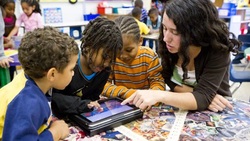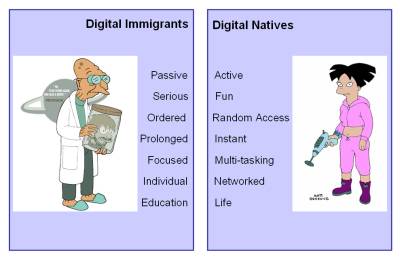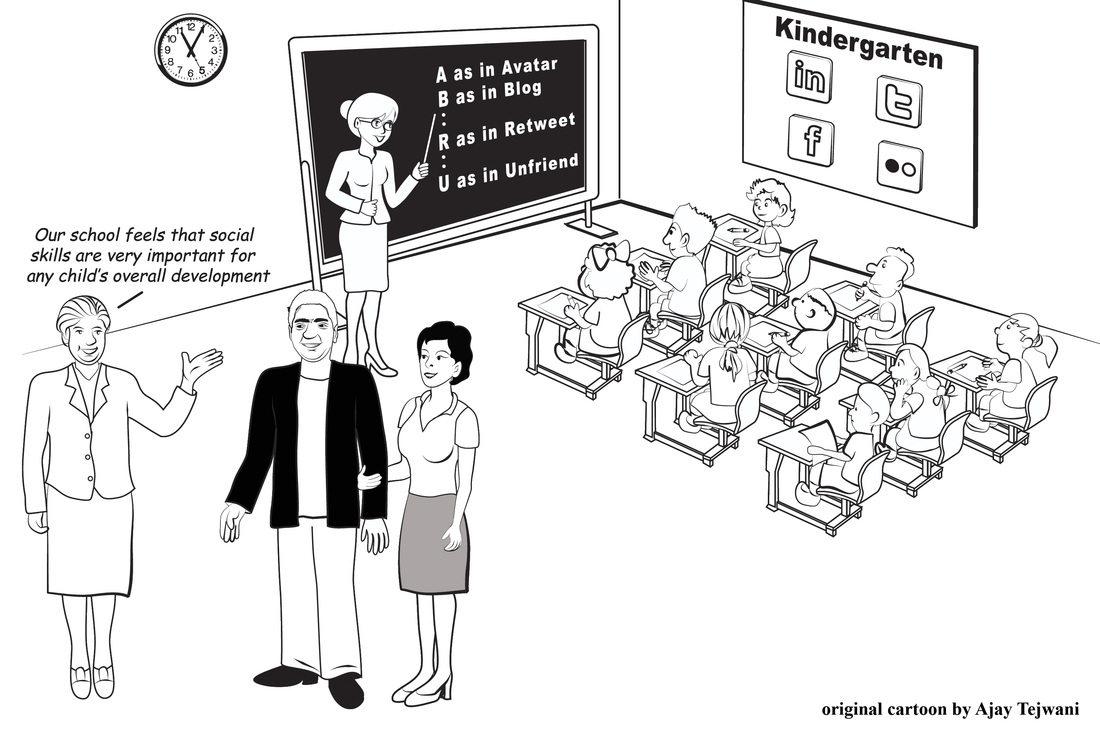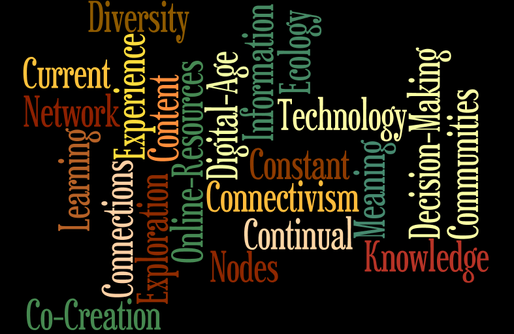Enjoy the presentation =)
Scratch is an online, interactive online community developed by MIT. This is not your typical online community, but it is peer driven by tiny little programmers who are as young as eight years old. Created with the younger generation in mind, Scratch allows you to create, share, and remix interactive games or tutorials through an easy free source coding platform. I took a stab at it. There is a tiny learning curve but the makers from MIT want you to look at it from the perspective of being a Lego (toy) builder - you never knew what you end up with when snapping the bricks together, its just a matter of trial and error to create a masterpiece. Check out what I remixed below! Classroom innovation begins with teachers and pedagogy. A superintendent who's district has become a model for digital conversion stated “Laptops and hardware will never replace teachers,” he said. “The secret to our success in Mooresville has been teachers being vibrant users of digital resources and understanding how to teach and inspire students as they’re using digital resources.”
It is evident that its not the lack of technology that is causing the problems in the classroom, it’s more so of its incorrect implementation and/or willingness of faculty to change their methodology to accommodate the use of technology (Wood & Ashfield, 2007, p. 87). Innovation is not hard to achieve. In this article, I like the fact that they include the youth in their decision making processes. Afterall, the students are the ones who are basically the testers per se, we are testing their achievement progress when innovating and using technology in the classroom. There is no big secret to getting school districts to innovate. I think we get too wrapped up in “what” the latest and greatest technology instead of “how” we can use it to learn and collaborate with others. There first, needs to be systems in place that are test-driven before implementing 100 new gadgets that "don't work properly" in the classroom. That would be money wasted and the notion that technology is unreliable, that idea can be avoided with proper research, through evaluation and data collection. http://www.edweek.org/ew/articles/2013/10/02/06el-culture.h33.html?tkn=LWWFRf11ovGsdPBFmMKcVapyat%2Fd2cg2OrZN&cmp=clp-edweek Researchers are examining whether video games can measure learning and build attention, empathy, and other noncognitive skills. Also, can it blur the line between instruction and assessment. Can this eliminate the need to test students with traditional pen and paper or even traditional online testing?
 Not sure how to incorporate blogging in your content area? The website below lists tons of ideas of how to go about blogging! From simple learning how to write/type tasks for younger students to more complex reviews on how they solved a math problem or proved a hypothesis in a science fair project.
http://web20intheclassroom.blogspot.com/2008/10/ways-to-use-blogs-in-your-classroom-and.html Thought this was a funny cartoon. Sums up the digital generation we are teaching. Most kids are more familiar with social media [and pop culture] then with the basics of a particular subject. Teachers must be in the know [of technology] to help make that connection to the student when learning something new.
 This article that I read recently gave the impression that implementing iPads to students from backgrounds of poverty can solve problems - never really stating what this problem was.
As we all know there are districts that can afford to upgrade their technologies in the classrooms and those who cannot. "A tablet rollout of this scale would be a hefty undertaking for any school district, but it is especially ambitious in this Coachella Valley Unified, which estimates that about 90% of students live in poverty." Then the District Superintendent went on to say, "This widespread poverty only makes the iPad initiative more necessary." Yes, I believe that tablets and iPads will help foster a more interactive learning environment, but it certainly will not solve poverty. In my opinion, there is very little connection between the two. Also, it is important for the faculty to be trained on how to incorporate technology in the most practical way in order for it to be effective in the classroom. This was one of the issues that my classmates voiced during our Google Hangout the other night, that they are giving the new technology or have SmartBoards in their classroom but are not given much guidance on how it works. The article then concluded with "kids love these things, they will be engaged.." Gadgets are cool and fun to 'play' with, but if a plan is not developed before the iPads get into the kids hands, then unfortunately they will still have low performance because they will be forced to study and learn through the old age approach - textbooks. What do you think? Source: http://www.freep.com/usatoday/article/2809679 I created this Wordle to illustrate the theory behind Connectivism by George Seimens. "Connectivism is a theory describing how learning happens in the digital age." As a learner in the 21st Century, I can attest that my ideas are constantly flowing and changing based on new information I am presented with in my daily life and interactions.
|




 RSS Feed
RSS Feed